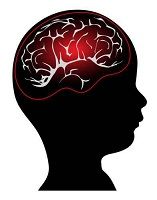Too Many Pills, Too Little Therapy for Youngest ADHD Kids
Half of very young children with ADHD are treated with medication rather than the behavioral modification that the American Academy of Pediatrics has recommended as first-line treatment, a CDC report finds.

Half of very young children with ADHD are treated with medication rather than the behavioral modification that the American Academy of Pediatrics has recommended as first-line treatment, according a new report from the U.S. Centers for Disease Control and Prevention (CDC).
Using statistics from Medicaid and private insurance data, the CDC found that only about half of the two-to-five year old children received the psychological services that the 2007 and 2011 APA guidelines recommended.
About 2 million of the 6.4 million children and adolescents diagnosed with Attention Deficit/Hyperactivity Disorder (ADHD), according to a parental survey, are diagnosed before they are six years old, the report said. Parents surveyed said that half the children described as having severe ADHD were diagnosed by age four.
"To effectively mitigate impairments associated with ADHD and minimize risks associated with ADHD medications, it is important to increase the percentage of young children with ADHD who receive evidence-based psychological services, especially parent training in behavior therapy," Susanna N. Visser DrPh and her co-authors wrote. Visser is acting associate director of science of the CDC's division of human development and disability, national center of birth defects and developmental disabilities.
Both medication and behavioral therapy are effective treatment for ADHD in children under six, the report noted.
"The strength of evidence for behavior therapy exceeds that for psychostimulant medication," the authors added. "Behavior therapy might require more time for achievement of full impact on child behavior and might require more resources, however, the impact lasts longer relative to ADHD medication and does not have the adverse health effects associated with these medications."
When ADHD medication wears off each day, three to five-year-olds experience adverse side effects, such as appetite suppression, sleep problems, stomach aches, emotional outbursts and irritability, in 30% of the cases, the report said.
ADHD treatment is important, the authors explained, because ADHD children have higher rates of being held back in school, dropping out of high school, and emergency department visits because of injuries. ADHD can carry over into adulthood where job and other psychiatric disorders can be a problem. The social costs of childhood ADHD can be high. In the U.S. it's estimated at $38-72 billion annually.
The report is based on a review of statistics from 34 Medicaid programs during the 2008 to 2014 period and from a national private insurance data base for the period ranging from 2008 to 2014. Medication treatment was more common for two to five-year-olds than psychological services among the insured children, the report said. In that group about 10% received neither medication or psychotherapy, 30% got both psychotherapy and medication, and almost half were treated with medication only.
The percentages for ADHD children covered by Medicaid varied from state to state.
Overall in the Medicaid population of ADHD children ages two to five years-old, 40% received medication only, about 15% received psychological services only, and, approximately 40% got both and about 5% received neither treatment.
The report was published in the May 3 issue of MMWR (Morbidity and Mortality Weekly Report).